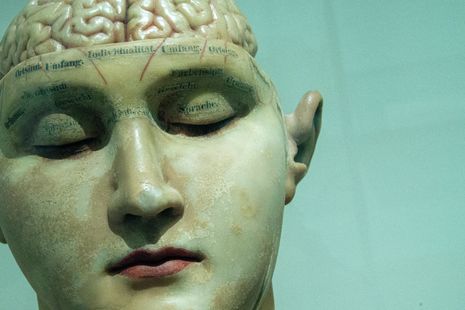Dangerous curiosity: how ethical is research into the brain?
“Your scientists were so preoccupied with whether they could, they didn’t stop to think if they should.” Do the wise words of Jeff Goldblum also apply to brain research?

Science has long been fascinated by the brain. The brain is seen as not only incredibly complex but also the producer of consciousness, and therefore understanding it can be viewed as the ultimate challenge. But in the pursuit of knowledge, when does brain research become immoral?
In the words of the renowned physiologist and emeritus professor Denis Noble, “We are conscious. We cannot be so without a functioning brain. Therefore, we locate consciousness in the brain.” This belief, widely agreed upon, should remind us to be careful with experimenting on the brain, and especially the human brain.
For years researchers have been warning fellow neuroscientists that they may be crossing into immoral territory should the ethics of their research not be properly considered. For example, artificially grown blobs of tissue made of stem cells have been found to spontaneously emit brain waves, similar to those seen in premature babies. Alongside the dubious morality of creating what could be a sentient being, there is concern about whether the test subjects can suffer. Work persists regardless, arguably as it is difficult to prove that the cells are under distress until there are visible signs. Indeed, some researchers claim that experiments upon brain cells in isolation cannot cause stress due to the lack of nociceptors – nerves that detect damage. The fact remains that perhaps we should not press on until we know more about what we are doing.
an entirely new line of moral questioning
The latest research has also sparked concern. Recently it was announced that scientists had managed to teach lab-grown brain cells to play the 1970s video game Pong. The cells were attached via electrodes to the video game and produced electrical activity, seeming to learn how to play in 5 minutes, with a much higher success rate than random chance. Researcher Dr Brett Kagan claimed he had produced “sentient” brain cells, an assertion that has been deemed by other scientists as baseless. If research does progress towards producing truly sentient brain conglomerates, there will need to be ethical guidelines in place - not least because brain cells alone cannot consent to experimentation.
Perhaps the most sinister research has involved implanting human brain cells into rats. According to the study, the human-brain-like transplants can send signals and respond to environmental cues involving the rat’s whiskers. When the whiskers were touched by researchers, the human cells in the brain reacted in response, suggesting that they could detect sensory information.
This opens up an entirely new line of moral questioning as to whether animals containing human brain cells deserve similar experimental protection to humans. In 2021, a report by the US National Academies of Science, Engineering and Medicine asserted that giving animals new cognitive abilities could be distressing and that the field should be closely watched. The idea of a human mind within an animal test subject’s body is no doubt a disturbing thought, reminiscent of Kafka’s ‘Metamorphosis’.
Yet researchers would argue that the potential benefits of brain research should not be overlooked. Significant medical and neurological advancements could occur as a result of this work. The study of brain cells and human-animal hybrids could reveal the mechanisms for illnesses, and allow for further testing. This could lead to the development of treatments for conditions such as dementia, which affects 944,000 people in the UK. The belief is that by curing such prevalent neurodegenerative diseases or psychiatric disorders, the experimentation involved to get there is justified.
But can the results ever truly justify the means? Can we overlook testing on conscious cells or human brains trapped in animal bodies to cure those with neurological conditions? That is the dilemma at the heart of brain research, and is a question that requires an answer sooner rather than later.
 Comment / Anti-trans societies won’t make women safer14 November 2025
Comment / Anti-trans societies won’t make women safer14 November 2025 News / Controversial women’s society receives over £13,000 in donations14 November 2025
News / Controversial women’s society receives over £13,000 in donations14 November 2025 News / John’s rakes in £110k in movie moolah14 November 2025
News / John’s rakes in £110k in movie moolah14 November 2025 Fashion / You smell really boring 13 November 2025
Fashion / You smell really boring 13 November 2025 Music / Three underated evensongs you need to visit14 November 2025
Music / Three underated evensongs you need to visit14 November 2025










